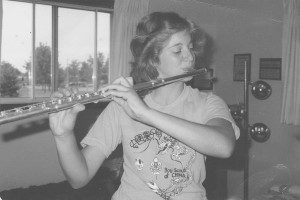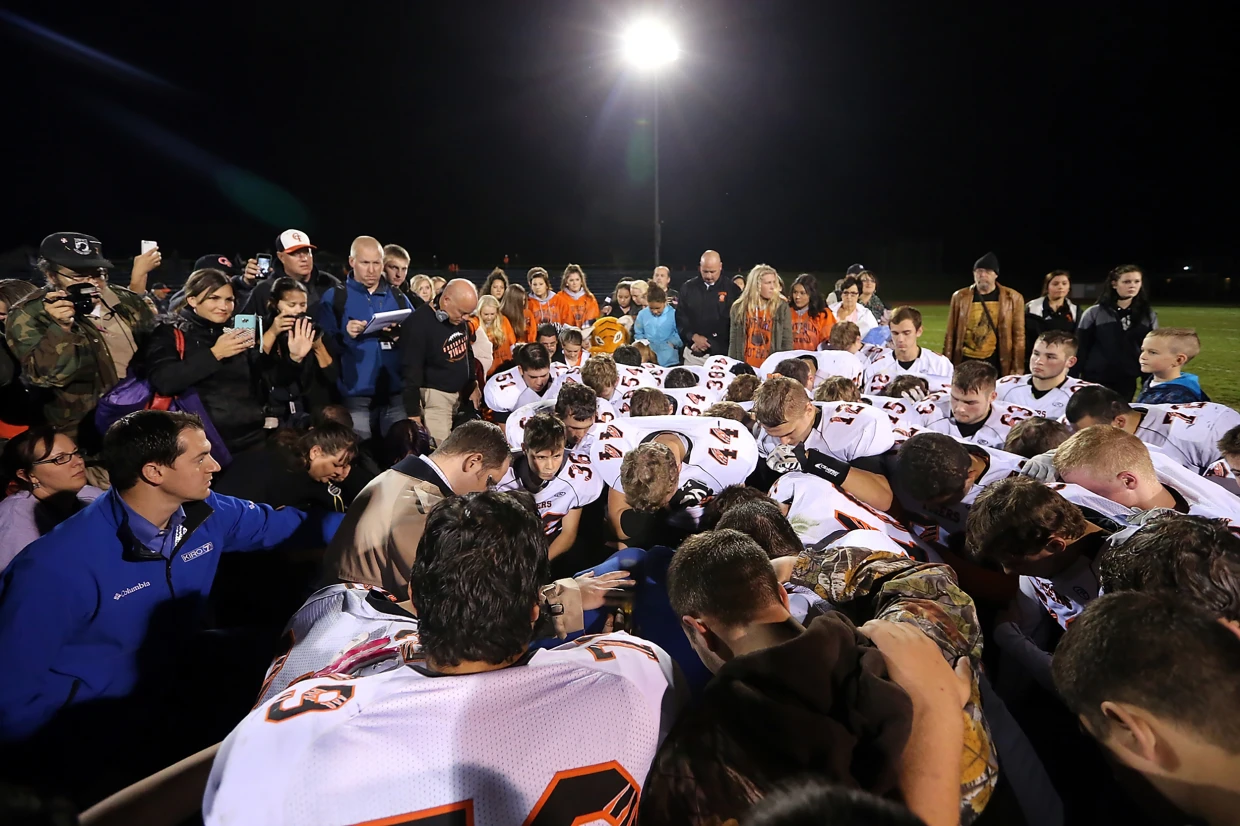Why writers become writers is an age-old question. I was one of those boring all-around students in high school, acing the sciences and math almost as readily as English and history. Go into computers, my mother suggested. It was the hot field in the early 1980s. I chose writing. Why? My career path, in part, stems from spending part of childhood as one of few Jews in a rural Ohio town. Below is part one of a two-part explanation. Yes, I’m a writer. I need two parts to explain my passion.
I sat there embarrassed, confused, and silent. A woman had just walked into my fourth-grade classroom in my new school and stuck a series of bearded figures on a felt board. She talked about Jesus and his disciples. Then she led the class in Christian hymns.
After school, my middle brother and I ran into our house and recounted the same story about this woman who taught us about Christianity in our public school classrooms. We were Jews, the only Jews in our rural Ohio school system in 1974. My parents protested the existence of the religious classes, but school officials refused to eliminate the practice. So, once a week, my teacher escorted me to the school library and told me to wait until the half-hour class ended.
Isolation. Ostracism. Experiencing both after my family’s move from western New York to rural Ohio set the stage for my becoming a writer. I ached to protest in some way, but did not know how. The religious classes ended when I reached seventh grade, but the sensation that I was different than my classmates continued. A youth minister roamed the cafeteria during lunch recruiting members for a Christian youth group. Pastors led prayer at school Christmas and Easter assemblies. Classmates questioned my religious beliefs, which were shaky at best. At age 12, I dropped out of Sunday school mostly out of boredom; I was tired, too, of the weekly hour-long drives to our temple. I identified myself as a Jew. I knew little about what that meant.
“If you don’t believe in Jesus, you’re going to go to Hell,” a classmate said.
“I don’t believe in Heaven, either,” I responded.
“But what happens when you die?” I again sat embarrassed, confused, and silent.
When the school brought pastors and a Christian band in for the annual Easter assembly, I usually slipped out of the auditorium. I grabbed my flute from my locker and went into a practice room and tried to heed my flute teacher’s advice as I shut out the rest of the world. Breathe, breathe, relax. Then play each song as if it were an unfolding story. I discovered beautiful stories in Mozart’s Concerto for D Major, in Debussy’s haunting Syrinx, and in Gluck’s Menuet and Spirit Dance. Well into high school, I thought of becoming a classical flutist. Something held me back. I could invent stories to go with the music, but wondered whether I could ever meet the composer’s intent. I wanted to create music, but lacked the talent and natural ear to compose.
TO BE CONTINUED. Read Part 2 tomorrow (Tuesday, Nov. 2). Yes, it’s Election Day, but some readers, I suspect, want to read about more than just politics.






Linda,
I remember those classes in elementary school. I am in training to be a Middle Grades teacher and we have learned about all the Supreme Court cases concerning religion in the public school system. When I recount my memories of that woman coming into the class and setting up her felt board and telling us Bible stories, most of my professors tell me I must be mistaken, there is no way a school was allowing this to happen in the mid-70’s. Guess they forgot about us kids in rural Ohio. For what it’s worth, 25+ years later, we didn’t know why you were leaving, but we knew you felt different for having to leave. As a child I was not raised in a religious atomphere, so I did not know to question or judge, but as an adult I understand your pain and confusion. I can only speak for myself, but I hope you know the majority of us did not judge you for your religion and we did cherish your talents and your friendship. If we only knew then what we know now, huh? (PS: Love reading your work, so I’m glad you didn’t follow the flute road!) Jodi (Johnson) Harrison, Class of ’82
Jodi,
Can’t thank you enough for affirming what I experienced. I did some reporting just last year or so to find out the history of these classes in Hancock County. An employee of the board said she remembered teaching those classes, and that they were taught by volunteers from local churches – with the approval of every school board in the county. They were taught all through the 70s, and according to one of our teachers, the classes ended probably sometime in the ’80s.
My parents did consider pushing the issue – since it was a clear violation of separation of church and state – and elected not to out of fear that it would case more problems for us as children. They felt there wasn’t much tolerance or acceptance of any minorities in the area during that period – whether the difference was religious or racial. There was a cross burning on a black family’s lawn shortly after we moved to Findlay.
I do know there were some great kids – including you – in my classes at VB who did not judge me by my religion. There were others who did, and as a 40-something person now, I look back and see that more as ignorance. And I agree! If teens were able to look at the world with the wisdom of adults, they’d probably be a lot kinder to each other.
On another note, tell your professors to check out my blog. .. Seriously, it was so easy for me to confirm that these classes occurred. And, I know from my years as an education writer, Van Buren High School was not an isolated case. It certainly would have been common in small – and probably even big towns – in the south. Thank you again for such a wonderful, interesting comment.
Linda